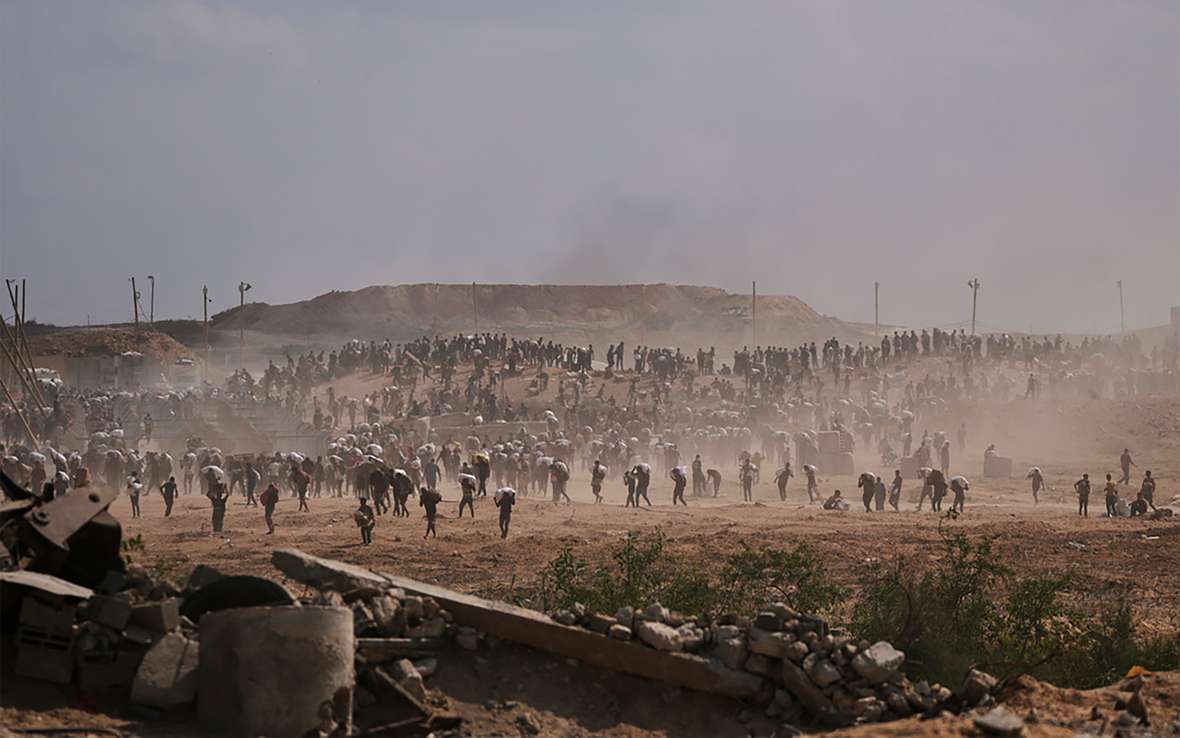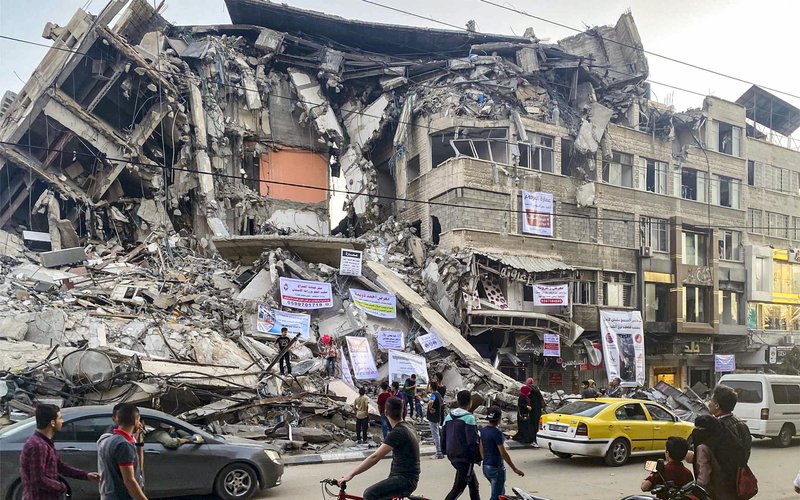The GHF's closure marks the end of another failed attempt to replace an aid system that is proven to work, writes Oxfam America's Peace and Security Director Scott Paul.
Yesterday the executive director of the Gaza Humanitarian Foundation (GHF) announced plans to close the aid project after five months of operations.
Far from a success, the initiative contributed to the tragic loss of hundreds of Palestinian lives at a time when the government of Israel prevented lifesaving humanitarian aid from being delivered in Gaza.
What was the Gaza Humanitarian Foundation?
The GHF began operations in May 2025, with the support of the U.S. and Israeli governments. Though its core operation aimed to provide food to people in southern and central Gaza, it was best known in the communities it served as a hazard to life and limb, and a slap in the face to the principles that make humanitarian assistance safe and dignifying.
- Food distribution centers were managed by US private security firms, employing personnel that had committed serious crimes and human rights violations.
- Hundreds of people lost their lives trying to access food from these centers. Many Palestinians were forced to travel long distances to sites on foot through areas where they were exposed to gunfire–and even then, many who made the journey were not able to obtain food.
- We at Oxfam, along with 170 other NGOs, declined to work together with the GHF due to its violations of core humanitarian principles, most of all the principle of "do no harm."
No one should die trying to access humanitarian aid
The GHF was part of a worrying and deadly trend: alternative approaches to aid delivery led by security and logistics firms that lack vital experience or fidelity to humanitarian principles.
In a world where humanitarian assistance is increasingly viewed as transactional, these firms offer an enticing proposition. They move goods quickly and efficiently, exert the brute force necessary to work in conflict zones, and help advance the political agenda of any government willing to fund them.
But as the failure of the GHF demonstrated, the essential ingredients for humanitarian assistance are not trucks and guns. They are the trust of communities, a deep understanding of how crisis shapes what people do and need, a steadfast determination to keep people safe and treat them with dignity, and an uncompromising commitment to avoid being instrumentalized for political or military agendas.
That’s why a “humanitarian pier” constructed in 2024 to help deliver emergency aid to Gaza by sea also failed. That costly effort—led by U.S. and Israeli military forces—also missed the real lesson here.
Humanity is the key ingredient in humanitarian action.
It's past time to let humanitarian aid into Gaza
We want to innovate and collaborate to save lives, but we must learn the lessons of these ill-fated projects. No military-run pier or distribution sites that circumvent humanitarian principles and hard-earned expertise can replace an aid system that is proven to work.
Prior to the ceasefire, Oxfam worked closely with our partners in Gaza to reach more than 1.2 million people with humanitarian assistance. Since the war began, our water, sanitation, and hygiene programs have reached over 800,000 people.
Now we continue to call for full access for humanitarian aid and commercial goods into Gaza, and a permanent ceasefire and support for Palestinians to return home. Palestinians must now be allowed take on the daunting challenge of rebuilding their communities and lives.

